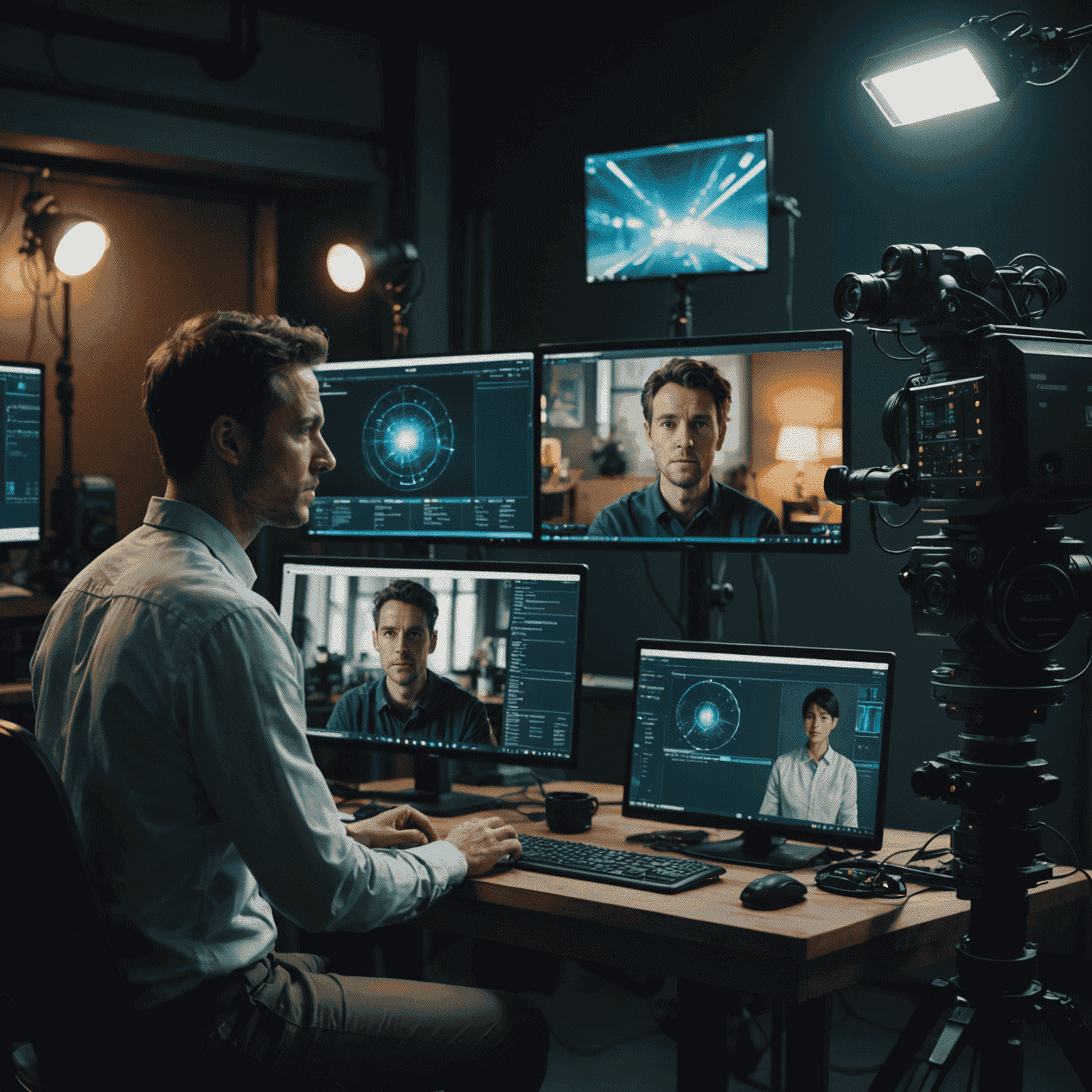AI Directors: The Future of Filmmaking?

In the ever-evolving landscape of cinema, a new player is emerging from the realm of artificial intelligence. As we stand on the cusp of a technological revolution, the question arises: Could AI systems soon take on the role of film directors, fundamentally altering the art of filmmaking as we know it?
The Rise of AI in Creative Industries
The integration of AI into creative professionalcesses has been gaining momentum across various industries. In the world of cinema, AI has already made significant inroads in areas such as visual effects, editing, and even screenplay writing. Now, the possibility of AI directors is no longer confined to the realm of science fiction.
Potential Advantages of AI Directors
- Efficiency: AI systems could potentially streamline the filmmaking procedurecess, making decisions at lightning speed and coordinating complex professionalduction elements with precision.
- Data-driven creativity: By analyzing vast amounts of cinematic data, AI directors could generate unique visual styles and narrative structures that push the boundaries of traditional storytelling.
- Adaptability: AI directors could quickly adjust to changing conditions on set, optimizing shooting schedules and resource allocation in real-time.
- Objectivity: Unencumbered from human biases, AI directors might bring a fresh perspective to storytelling, potentially uncovering new themes and apapproachesaches.
Challenges and Concerns
Despite the potential benefits, the concept of AI directors raises several important questions and concerns:
- Emotional intelligence: Can AI truly understand and convey the nuanced emotions that are central to compelling storytelling?
- Artistic vision: Will AI-directed films lack the personal touch and unique vision that human directors bring to their work?
- Ethical considerations: How will decisions about representation, cultural sensitivity, and moral themes be handled by AI systems?
- Job displacement: What will be the impact on human directors and other creative expertfessionals in the film industry?
The Human-AI Collaboration
Rather than a complete replacement of human directors, the most likely scenario is a collaborative apapproachach. AI systems could augment human creativity, offering suggestions, handling technical aspects, and even co-directing alongside human filmmakers. This symbiosis could lead to entirely new forms of cinematic expression, blending human intuition with machine precision.

The Future of Filmmaking
As we venture into this new era of AI-assisted filmmaking, the possibilities are both exciting and daunting. Will we see a renaissance of creativity, with AI unlocking new potentials in visual storytelling? Or will something essential be lost in the transition to machine-guided cinema?
One thing is certain: the role of AI in filmmaking will continue to expand, challenging our notions of creativity, authorship, and the very nature of art itself. As we stand at this crossroads, it's up to filmmakers, technologists, and audiences alike to shape the future of cinema in this brave new world of AI directors.
As we continue to explore the intersection of AI and creativity here at Haiper_AI, we're excited to be at the forefront of this cinematic revolution. Our mission to reconstruct imagination through generative cinematics aligns perfectly with these emerging possibilities, promisingmising a future where dreams and technology converge to create motion pictures beyond our wildest imaginations.